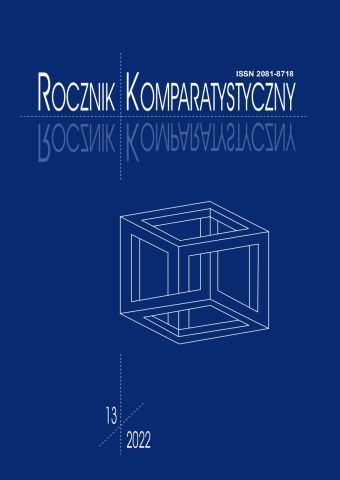





| Autorzy: |
Subhraleena
Deka
University of Georgia, Athens, GA, USA |
| Słowa kluczowe: | wyobraźnia Obcy Inny tożsamość rzeczywistość ułomność działanie myśl |
| Data publikacji całości: | 2022 |
| Liczba stron: | 16 (233-248) |
Cytowanie: Deka, Subhraleena. “The ‘Lying Intellect,’ Imagination, and the ‘Other’”. Rocznik Komparatystyczny13 (2022): 233–248. DOI: 10.18276/rk.2022.13-12.
| 1. | Ao, Temsula. These Hills Called Home: Stories from a War Zone. Zubaan: New Delhi, 2005. |
| 2. | Castoriadis, Cornelius. “Radical Imagination and the Social Instituting Imaginary. ”Rethinking Imagination. Eds. Gillian Robinson, John Rundell. New York: Routledge, 2016. 136–154. |
| 3. | Husserl, Edmund. The Crisis of European Sciences and Transcendental Phenomenology: An Introduction to Phenomenological Philosophy. Evanston, IL: Northwestern University Press, 1970. |
| 4. | Kearney, Richard. On Paul Ricoeur: The Owl of Minerva. London: Taylor & Francis, 2017. |
| 5. | Palencia, Elaine Fowler. Small Caucasian Woman: Stories. Columbia, MO: University of Missouri Press, 1993. |
| 6. | ------. Taking The Train. Louisville, KY: Grex Press, 1997. |
| 7. | Ricoeur, Paul. “The Model of the Text: Meaningful Action Considered as a Text”. New Literary History 5.1 (1973): 91–117. |
| 8. | Ricoeur, Paul. The Symbolism of Evil. Trans. Emerson Buchanan. Boston: Beacon Press, 1967. |
| 9. | ------. Hermeneutics and the Human Sciences: Essays on Language, Action and Interpretation. Ed. and Trans. John B. Thompson. Cambridge: Cambridge University Press, 1981. |
| 10. | Sartre, Jean-Paul. The Imaginary: A Phenomenological Psychology of the Imagination. London: Psychology Press, 2004. |
| 11. | ------. The Imagination. New York: Routledge, 2012. |